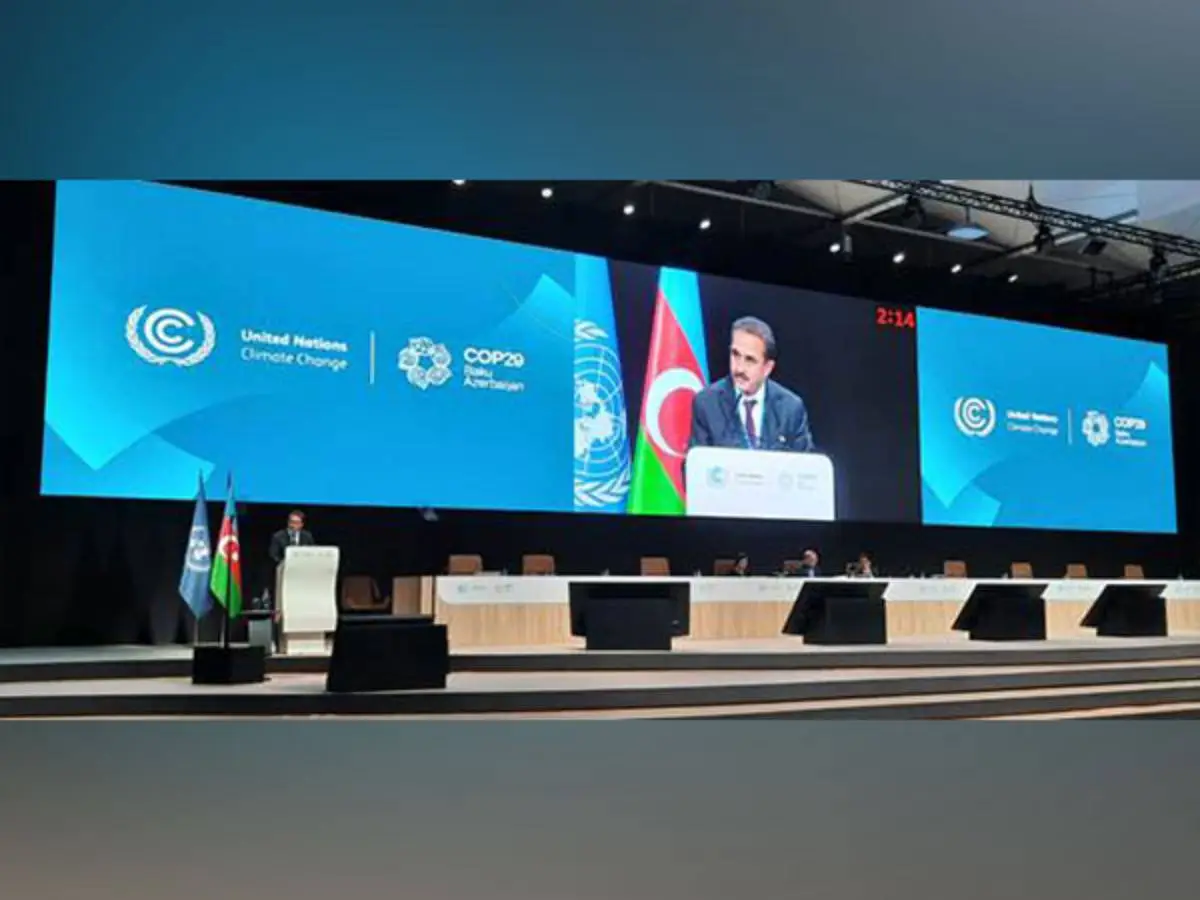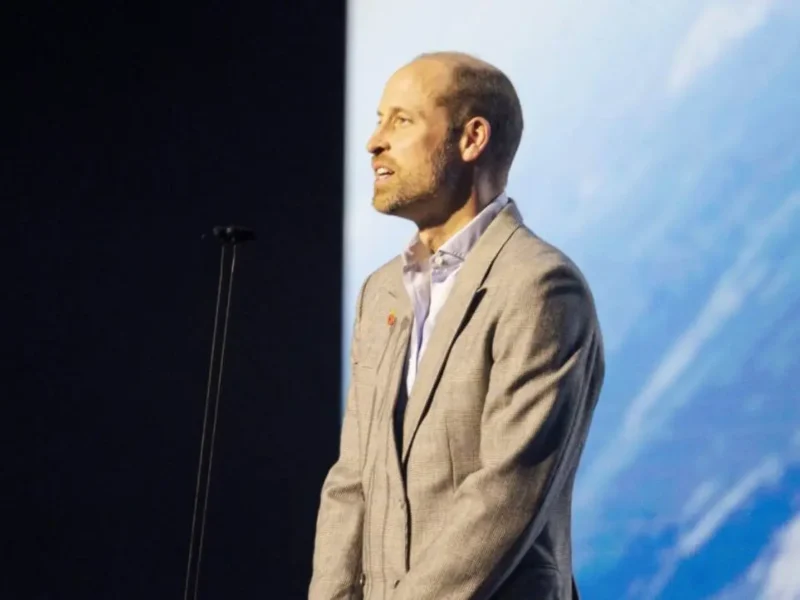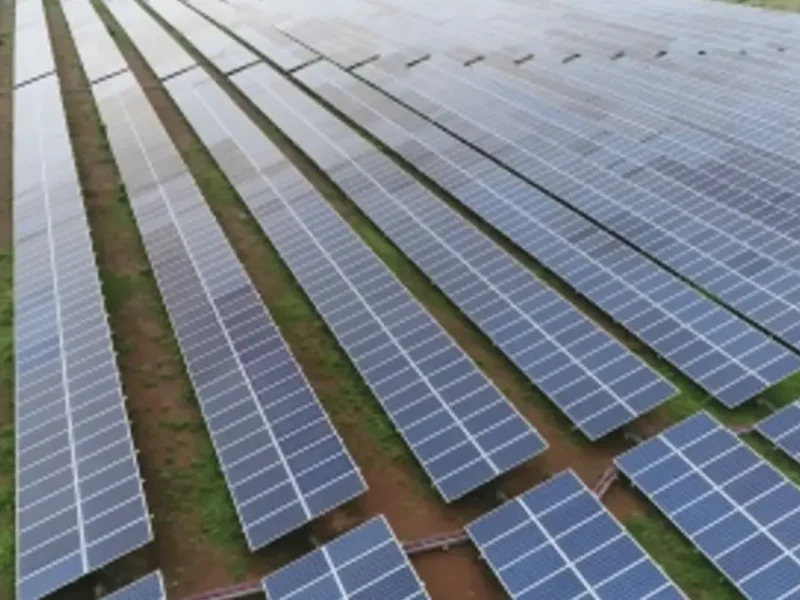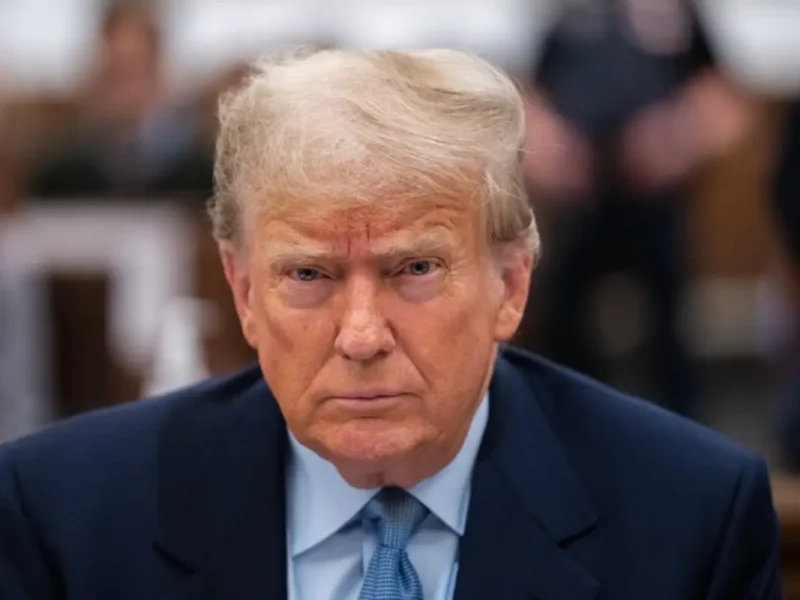India Calls For Climate Justice At COP 29
BAKU (ANI) – India on November 19 emphasized the urgent need for developed countries to take leadership in mitigating climate change and providing adequate carbon space for developing nations, highlighting the disproportionate financial burden on the Global South.
Delivering the national statement at the COP 29 summit in Baku, Minister of State for Environment, Kirti Vardhan Singh called for ambitious, clear climate finance decisions, stressing that the evolving needs of developing countries must be addressed to ensure sustainable development and poverty eradication.
Singh pointed out that the historically high carbon emission pathways of developed nations have left very little room for the Global South to grow within the carbon budget. “Our growth trajectories for fulfilling the primary needs of sustainable development and poverty eradication cannot be compromised,” he said.
He further emphasized that, despite the Global South’s minimal contribution to the problem, countries in this region continue to bear significant financial burdens due to climate actions for mitigation and the losses caused by climate change. “This severely limits our capacity to meet our developmental needs,” Singh added.
He also stressed the importance of climate justice in the decision-making process at COP29. “The decisions on NCQG must be ambitious and unambiguous, taking into consideration the evolving needs and priorities of the developing countries,” Singh asserted.
Singh highlighted the urgency of the upcoming round of Nationally Determined Contributions, due next year, warning that the breach of carbon space could become imminent towards the end of this critical decade. “It is imperative that the developed countries show leadership in mitigation actions, as required under the Paris Agreement, by not just advancing their net-zero targets but providing enough carbon space for developing countries like ours to develop,” he said.
Singh also called for the establishment of new, ambitious climate finance goals to meet the evolving needs of developing countries. “The decisions must be ambitious and unambiguous, taking into consideration the evolving needs and priorities of the developing countries, and their commitment to sustainable development and eradication of poverty,” he added.





VIJAY
/
FACT: THIS IS A CRUEL WORLD. THERE IS NO JUSTICE; THERE IS NO ENVIRONMENT JUSTICE; AND THERE MAY NOT BE A GOD BECAUSE IF THERE WAS ONE HOW COULD WE SEE SO MUCH UNJUSTICE EVERY WHERE?
November 20, 2024Jagjit Singh
/
Saudi Arabia’s Climate Obstruction Must Be Addressed
November 20, 2024As the world grapples with the accelerating impacts of climate change, Saudi Arabia’s obstructionism at critical international climate negotiations is both blatant and alarming. Despite signing a 2023 global agreement to transition away from fossil fuels, Saudi officials have since worked tirelessly to undermine that commitment in multiple U.N. forums and other international gatherings.
At COP29 in Azerbaijan, Saudi diplomats have been accused of deploying procedural tactics to derail negotiations, from blocking texts to refusing to attend meetings. Their actions echo similar disruptive behavior at other venues, such as the International Atomic Energy Agency summit and the G20. By opposing even modest language supporting a fossil fuel transition, Saudi Arabia risks sidelining meaningful progress.
Compounding this is the emboldened rhetoric of Saudi leaders. Prince Abdulaziz bin Salman dismissed the 2023 Dubai agreement as a mere “à la carte menu,” while Aramco CEO Amin Nasser openly called the idea of phasing out oil and gas a “fantasy.” This attitude reflects not only a refusal to lead but a determination to resist global momentum toward cleaner energy.
Climate agreements rely on repetition and reinforcement across international forums to gain traction. Saudi Arabia’s persistent efforts to block such affirmations undermine global climate goals and embolden other fossil fuel-dependent nations to do the same.
As the leading oil exporter, Saudi Arabia wields outsized influence in climate talks, but this influence is being wielded irresponsibly. It is imperative that other nations, particularly the United States and G20 leaders, hold Saudi Arabia accountable for its obstruction. The future of our planet depends on collective action, not sabotage.